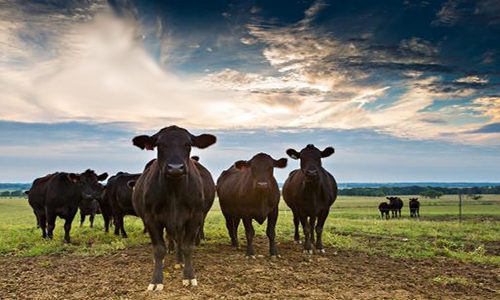University of Missouri Extension beef specialists will sum up almost two decades of research at a field day, Sept. 20, at the MU Thompson Farm, Spickard.
The work was begun to improve artificial insemination (AI) in cow herds. But it became much more than breeding.
Different AI methods are needed for heifers at puberty than for mature cows.
David Patterson, MU Extension beef specialist, will give an overview of his breeding research. He will tell benefits for herd owners.
In the past, AI breeding was labor-intensive. Farmers spent hours watching their herd for a month to detect females ready to be bred. That took time and wasn’t efficient. Adoption of AI lagged in beef herds.
Scientists learned to synchronize heat cycles of cows and heifers. Then a herd could be bred in one day. One gathering of the cow herd saved many days of work.
A bonus from one-day breeding was more uniform calf crops. That uniformity adds value to feeder calves sold to feedlot buyers.
None of that came in one easy step. Every advance brought a new research project. Each step improved calving ease and success.
Now AI protocols from Thompson Farm are used across the nation and the world. Breeding heifers took the longest study. Those first-calf females are erratic.
The research pays off for hundreds of producers who join the Show-Me-Select Replacement Heifer Program. Heifers bred with proven genetics bring bonuses in sales of replacements. The steers from the herd make higher-quality beef for consumers.
The MU heifer program goes far beyond timed AI breeding. It became a herd management plan that includes reproductive tract scores. It requires feeding and health plans that boost calving success.
Jared Decker, a part of the genomics team in MU Animal Sciences, will tell new possibilities. By testing DNA of all females in the Thompson beef herd, predictable genetic advances are on the way.
The DNA tests reveal more than a pedigree can for cows. This allows better genetic predictions, knowing the genetics of all females in the herd.
Next, successful herd sires used at the MU farm are being DNA-sequenced. With DNA testing, thousands of base pairs are looked at. But with DNA sequencing, all 3 billion base pairs of the sires will be identified. This allows in-depth scientific study, which down the line allows better DNA tests.
Recently, the beef reproduction team went back to the cow herd to refine AI methods. New cow AI protocols increase calving rates 5 percent in timed breeding.
Rod Geisert, Thompson Farm superintendent, says the day’s program includes more than breeding. He will talk about genetic editing to improve herd health.
Scott Brown, MU Extension livestock economist, offers price outlooks. He will tell risk management for producers facing lower cattle prices.
The far-out topic will be drones used on beef farms. Bruce Burdick from MU Hundley-Whaley Farm, Albany, will demonstrate.
The free program opens with registration and coffee at 8:30 a.m. Lunch will be served while vendors offer their services.
After lunch, Decker will display cow-calf pairs in pens to show genetic progress and DNA test results.
The farm, part of the Missouri Agricultural Experiment Station, is 7 miles west of Spickard on Highway C off Highway 65 in Grundy County. For GPS guidance enter, 668 Hwy C, Spickard.







